- Government
- Posted
Minister Ryan launches Low Carbon Homes Programme
€9m for developers of A2 rated housing
Energy minister Eamon Ryan TD today announced a new grant scheme which
will provide financial support for the construction of highly energy
efficient, low carbon housing.
The Low Carbon Homes Programme, which will be administered by Sustainable Energy Ireland, will provide grants of up to 40% of eligible expenditure to encourage large developments of new homes to an energy performance standard well in excess of the recently adopted building Regulations. Homes built under the programme will be at least 70 per cent more energy efficient and produce at least 70 per cent less carbon dioxide than homes built to 2005 standards and will have a Building Energy Rating (BER) of at least A2. Homes build to the standard of the recently adopted Building Regulations, would typically have a BER of B1, two points below the minimum standard of the new programme.
With a capital envelope of €9 million until the end of 2011, the Scheme will seek to achieve zero or very low carbon emissions from supported homes by requiring a significant element of auto-generation of electricity from renewable technologies such as solar photovoltaic, micro-wind and micro combined heat and power (CHP). The programme will demonstrate the efficiencies that can be achieved with low carbon housing, and will also form an evidence-base for future policy decisions in the area.
In 2007, Building Regulations were amended to establish mandatory higher energy efficiency and emissions standards which are 40% better than the 2005 Building Regulations and it has been proposed that this will be increased to 60% in 2010. This planned revision in 2010 will typically bring new homes up to a Building Energy Rating of A3. This new programme will prepare the building industry to move beyond that to A2 and even A1 homes.
Speaking as he launched the programme, Minister Ryan stated: ‘The recently adopted Building Regulations have placed Ireland among the best in Europe in terms of energy efficient new housing. However, the threat of climate change and the impacts of rising oil, gas and electricity prices mean that we must aim for the very highest efficiency standards possible, while tackling the carbon emissions from our electricity use in the home.
These will be houses where energy waste is minimised and where heat is produced and electricity generated on site. This is the housing of the future.’
The programme will comprise capital grants to developers for eligible works. Supported homes will maximise solar heat gain, minimise heat loss through insulation and ventilation control, maximise heat recovery and will apply electricity demand management technologies including smart metering.
According to the department heating will be provided using renewable energy technologies including solar hot water and pellet fuel stoves for space and hot water heat production.
Homes will generate their own electricity using photovolatics, micro wind, hydro power or combined heat and power. There will be a requirement that deployed technologies be appropriate to their location.
The following minimum eligibility criteria will apply to supported homes:
· A Building Energy Rating (BER) of A2 or better for each unit in the project
· An energy performance coefficient less than 0.25
· A carbon dioxide performance coefficient less than 0.30
· Generate electricity onsite (for supply or export) to the equivalent of 10 kWh/m2/yr or greater per unit
The Low Carbon Homes Programme, which will be administered by Sustainable Energy Ireland, will provide grants of up to 40% of eligible expenditure to encourage large developments of new homes to an energy performance standard well in excess of the recently adopted building Regulations. Homes built under the programme will be at least 70 per cent more energy efficient and produce at least 70 per cent less carbon dioxide than homes built to 2005 standards and will have a Building Energy Rating (BER) of at least A2. Homes build to the standard of the recently adopted Building Regulations, would typically have a BER of B1, two points below the minimum standard of the new programme.
With a capital envelope of €9 million until the end of 2011, the Scheme will seek to achieve zero or very low carbon emissions from supported homes by requiring a significant element of auto-generation of electricity from renewable technologies such as solar photovoltaic, micro-wind and micro combined heat and power (CHP). The programme will demonstrate the efficiencies that can be achieved with low carbon housing, and will also form an evidence-base for future policy decisions in the area.
In 2007, Building Regulations were amended to establish mandatory higher energy efficiency and emissions standards which are 40% better than the 2005 Building Regulations and it has been proposed that this will be increased to 60% in 2010. This planned revision in 2010 will typically bring new homes up to a Building Energy Rating of A3. This new programme will prepare the building industry to move beyond that to A2 and even A1 homes.
Speaking as he launched the programme, Minister Ryan stated: ‘The recently adopted Building Regulations have placed Ireland among the best in Europe in terms of energy efficient new housing. However, the threat of climate change and the impacts of rising oil, gas and electricity prices mean that we must aim for the very highest efficiency standards possible, while tackling the carbon emissions from our electricity use in the home.
These will be houses where energy waste is minimised and where heat is produced and electricity generated on site. This is the housing of the future.’
The programme will comprise capital grants to developers for eligible works. Supported homes will maximise solar heat gain, minimise heat loss through insulation and ventilation control, maximise heat recovery and will apply electricity demand management technologies including smart metering.
According to the department heating will be provided using renewable energy technologies including solar hot water and pellet fuel stoves for space and hot water heat production.
Homes will generate their own electricity using photovolatics, micro wind, hydro power or combined heat and power. There will be a requirement that deployed technologies be appropriate to their location.
The following minimum eligibility criteria will apply to supported homes:
· A Building Energy Rating (BER) of A2 or better for each unit in the project
· An energy performance coefficient less than 0.25
· A carbon dioxide performance coefficient less than 0.30
· Generate electricity onsite (for supply or export) to the equivalent of 10 kWh/m2/yr or greater per unit
Last modified on Tuesday, 22 July 2008 16:26
- News
- GOVERNMENT
- Minister Ryan launches low carbon housing scheme
- eamon ryan
- Building Energy Rating
- Low Carbon Homes Programme
- Sustainable Energy Ireland
- sei
- BER
Related items
-
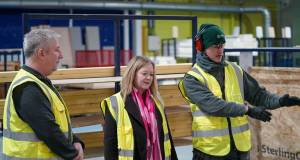 Wales unveils net zero pattern book
Wales unveils net zero pattern book -
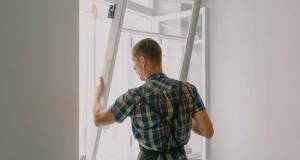 Chartered Institute of Building urges VAT overhaul to encourage reuse and renovation
Chartered Institute of Building urges VAT overhaul to encourage reuse and renovation -
WorldGBC launches green building policy principles for governments
-
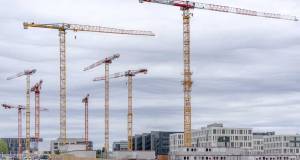 Climate action plan sets embodied carbon targets for construction
Climate action plan sets embodied carbon targets for construction -
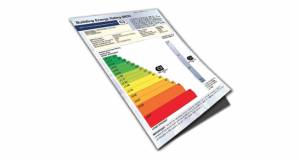 BERCerts.ie offering ventilation validation
BERCerts.ie offering ventilation validation -
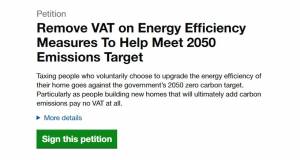 New drive to cut VAT on MVHR systems
New drive to cut VAT on MVHR systems

